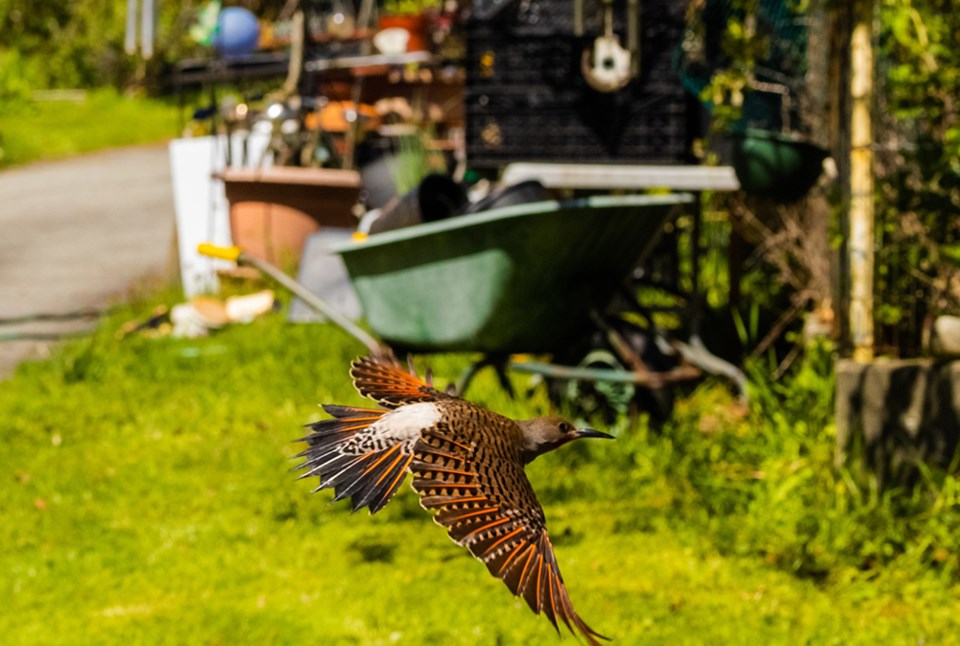With spring in full swing, birds are making their presence known. If feathered creatures, especially robins, are knocking on the window, they aren't trying to come in; they are simply seeing a reflection of themselves in the window and are trying to fight off the intruder.
This is mating season, when males set up their territories and attack any other male bird in their area, even if it means a persistent headache. Closing the curtains does not make a difference. The reflection needs to be broken up on the outside of the windows so they can't see themselves, or a reflected picture of the grass or sky, and fly into it.
There is no set season, day or time when birds are safe from window collisions, and migratory birds are especially vulnerable, according to BC SPCA.
"In Canada, as many as 16 to 42 million birds are . With billions of birds migrating across North America, the risk is significant. Climate change also means their world is changing, and many migratory birds are adapting their migration patterns, leaving them more vulnerable to new challenges, including window strikes."
Advice for homeowners: Walk around the outside of your house at various times of day and look at your windows. If you see the yard or sky reflected, so will birds.
Attach vinyl bird silhouettes on the outside of the window. This breaks up the reflection and lets birds know there is a physical barrier there. Stretching hardware cloth tightly over the outside of the window is another remedy which allows homeowners to enjoy the view while stopping the reflection.
High visibility decals, one-way window film or window tape makes window surfaces more visible. Mesh frames create a barrier, and the taut material allows birds to harmlessly bounce off. Window products can be found at .
Anyone who finds a bird that has struck a window should note any obvious signs of injury while containing the bird in a cardboard box with air holes and a secure lid. Place the box in a dark quiet place and contact the BC SPCA Wildlife Hotline at 1.855.622.7722 for help.
Join the for the top headlines right in your inbox Monday to Friday.



